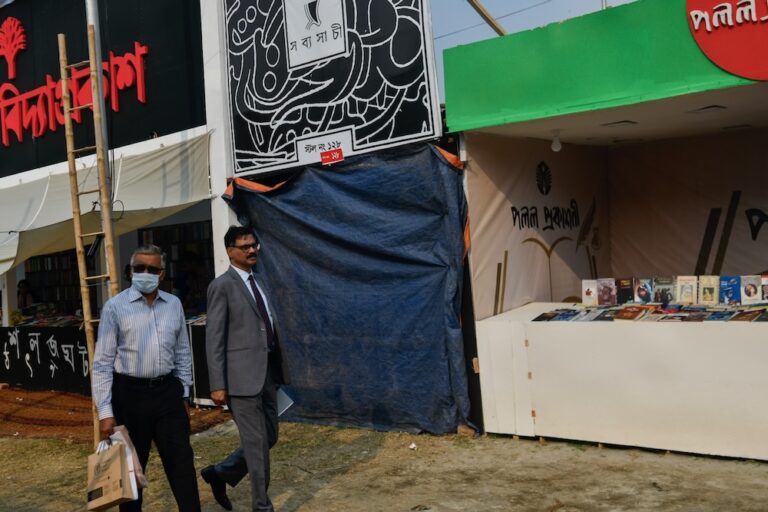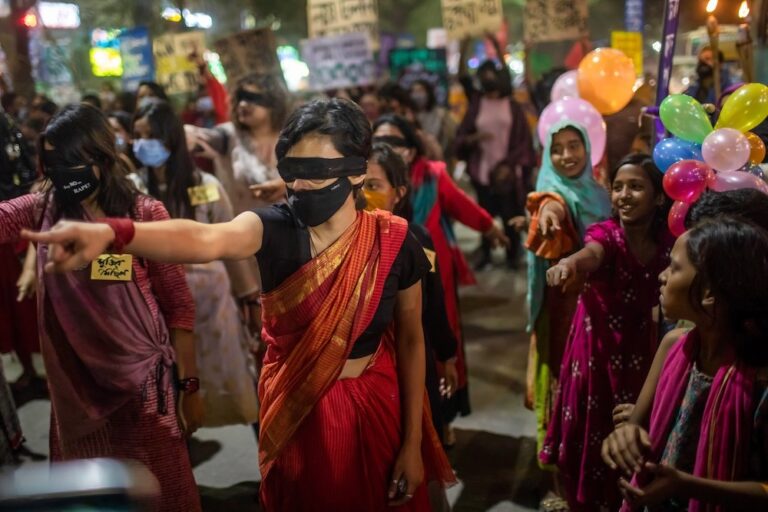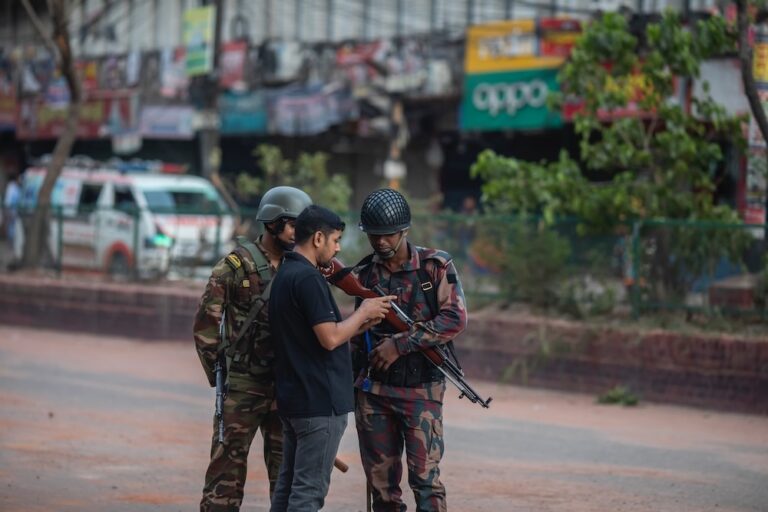(RSF/IFEX) – RSF has expressed outrage after four journalists were wounded, two very seriously, in a 5 February 2005 bomb attack on the press club in Khulna, southwestern Bangladesh. Two of the injured journalists remain hospitalised. No one has claimed responsibility for the bombing. RSF called on Interior Minister Lutfozzaman Babor to do everything possible […]
(RSF/IFEX) – RSF has expressed outrage after four journalists were wounded, two very seriously, in a 5 February 2005 bomb attack on the press club in Khulna, southwestern Bangladesh. Two of the injured journalists remain hospitalised. No one has claimed responsibility for the bombing.
RSF called on Interior Minister Lutfozzaman Babor to do everything possible to bring those responsible to justice and to protect journalists.
The bomb detonated at 9:30 p.m. (local time), as journalists were leaving the building. It had been placed in a bag and left on a moped belonging to Sheikh Belaluddin Ahmed, of the daily “Sangram”. The bomb detonated as he approached the moped.
Sheikh Belaluddin Ahmed was very seriously injured and taken to Khulna hospital, where his left hand and two fingers from his right hand were amputated. He also suffered a serious injury to his left eye and needed a major blood transfusion. On 6 February, he was moved to Dhaka hospital’s intensive care unit and put on a ventilator. Doctors described his condition as “critical.”
The other casualties included Sheikh Abu Hasan, a correspondent for the the daily “Prothom Alo” and Khulna Pess Club chairman, Sheikh Jahid Hossain, a photographer for the daily “Jugantor”, and Tutul Ahmed, a reporter for the Jessore-based daily “Loksomaj”. All three journalists were treated in a Khulna clinic. Sheikh Jahid Hossain remains seriously ill. The other two journalists were discharged.
The force of the bomb blast blew out several windows and destroyed some of the Khulna Pess Club’s fixtures. It took firefighters around 20 minutes to bring the blaze triggered by the bomb under control.
Khulna police, who suspect armed Maoists for the attack, said the bomb was probably detonated by remote control. Two suspects, Hoby Sheikh and Khokon, have been arrested for questioning.
In its letter to the interior minister, RSF said, “Your government is currently stepping up security for around 50 key figures, following a series of bombings. We urge you not to forget the Khulna region, where journalists are constantly the targets of extreme violence.”
Since the 27 June 2004 murder of journalist Humayun Kabir Balu, a police patrol had been assigned to the Khulna Press Club (see IFEX alerts of 28 June 2004). The new police superintendent, who visited the press club on 29 January, promised to protect journalists at the location every day until 10:00 p.m. However, on the evening of the bombing, no police officers were present.
The “Daily Star” reported that 250 officers had been deployed to protect the press club and the offices of local newspapers.
On 6 February, Khulna journalists held a protest march in reaction to the bombing and ordered a news blackout. No local newspapers were published on that day.
On 4 January, Dip Azad, a Khulna-based correspondent for national daily “Jugantor”, narrowly escaped when a homemade bomb was thrown at him but failed to detonate (see alert of 5 January 2005). From Dhaka, he told RSF, “It is no longer possible to work in Khulna. Several journalists are considering giving up journalism under pressure from their families.” Three journalists were murdered in this region in 2004.


